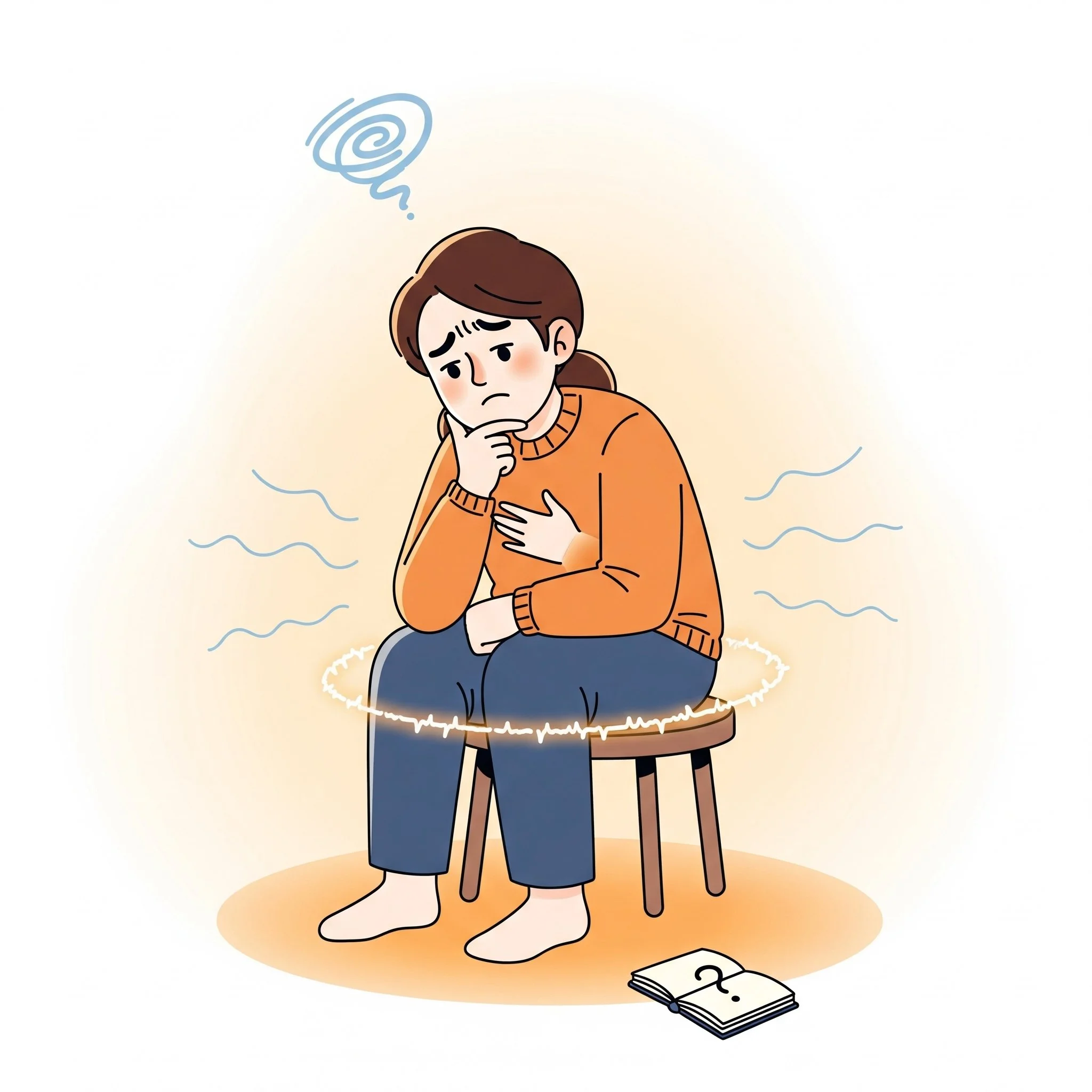Experiencing the Feeling of Confused
The feeling of confused is the experience of mental disorientation or emotional disarray.
Am I confused because I genuinely lack information — or because the information I’m receiving feels conflicting?
What is the physical experience of this confusion? Tension? Foggy thoughts?
When I’m confused, do I tend to shut down, or get curious and ask questions?
Could this confusion be rooted in fear, people-pleasing, or past emotional patterns?
Many of us experience confusion regularly. Whether it’s learning something new, navigating change, or trying to interpret someone’s mixed messages, confusion is a part of growth. It’s not just “not knowing.” It’s a disruption. It’s the moment you realize what you believed or expected doesn’t match what’s actually happening. That dissonance can be uncomfortable, but it’s also full of potential. It’s in that gap — between clarity and confusion — that awareness expands, if we’re willing to stay with it.
Heather, Tina, and Michelle explored how we relate to confusion, not just mentally but emotionally. Some people respond with overwhelm or shutdown. Others respond with curiosity or determination. That response can often be traced back to early life experiences. Were you encouraged to ask questions? Or punished for not understanding quickly enough? Those childhood cues often shape how safe or unsafe confusion feels in adulthood. The conversation pointed out that confusion can either be something that shuts us down or something that invites discovery. The difference often lies in how we were taught to relate to it.
Confusion doesn’t only show up when learning new things. As Michelle shared, it often arises in relationships — particularly when someone’s words and actions don’t align. Emotional confusion can come from mixed signals, gaslighting, or manipulation. If you find yourself constantly confused around one particular person or dynamic, it might not be your own lack of clarity at all. It could be a sign that the situation itself is confusing by design. Becoming curious in those moments, rather than self-critical, is a powerful step toward emotional clarity.
Naming confusion as a valid emotion rather than just a cognitive failure opens up space for self-compassion and reflection. It shifts the narrative from “What’s wrong with me?” to “Something’s not making sense here.” That alone can be a relief. Confusion is not a weakness. It’s an alert from your system that something needs closer attention. It can even be a form of intelligence signaling that you’re picking up on complexity that others might be ignoring. Letting yourself sit in the discomfort of confusion is often the beginning of real insight.
Mindful Mindset
When you're feeling confused, try starting with curiosity. Instead of letting confusion feel like a roadblock, approach it like a puzzle worth exploring. Ask yourself, “What’s really going on here?” or “What’s this feeling trying to tell me?” This shifts the focus from frustration to discovery and gives you a gentler way to navigate uncertainty.
Mindful Practices
When confusion hits, pause and breathe. Notice your body's reaction—tension, overwhelm, or shutting down. Name the feeling: “I’m confused, and that’s okay.” Then take a small step—ask a question, write what you know, or seek help. Small actions make confusion manageable.
By Princess Nicole Salas,
Princess Nicole Salas is a FeelWise Assistant with a passion for emotional intelligence, empathy, always exploring what it means to understand people more deeply. She loves watching movies and reading books. She believes even the quietest role can create meaningful impact and routed and care and intention.
You can listen to and follow Feelings Matter on:


